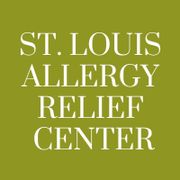
Food allergies are among the most common problems in the United States, affecting nearly 10% of the population. However, even as widespread as these conditions are, much is still misunderstood about them and their treatment and management. To learn more about food allergies and how to manage them, have a look at the answers to some common questions below.
What You Should Know About Food Allergies
What is a food allergy?
A food allergy occurs when the immune system mistakenly perceives certain foods as threats to the body. The reason for this is unclear, although it may be do to some genetic predisposition or an interruption to breastfeeding within an infant’s first six months of life. Regardless, there is always some harmless food protein that the allergic person's body has decided is harmful. The symptoms can range from minor to severe--from irritating skin rashes and swelling to potentially fatal anaphylaxis.
How do allergies differ from intolerances?

Food allergies are sometimes mistaken for food intolerances. However, an intolerance is a much milder condition, characterized by the body’s inability or difficulty to digest certain foods rather than a life-threatening reaction. For example, those with lactose intolerance, one of the most widespread food intolerances, may still be able to digest small amounts of lactose when combined with digestive aids. On the other hand, someone with a lactose allergy would be in danger of consuming dairy products.
What are the most common allergies?
More than 170 different foods have been identified as causing allergies. However, the most common allergens are eggs, cow’s milk, peanuts, soy, wheat, sesame, fish, shellfish, and wheat. Fortunately, the United States Food and Drug Administration requires food producers to list common allergens on all packaging prior to sale.
How can allergy symptoms be controlled?
Currently, there are no cures for food allergies. However, it is possible to treat their symptoms and to reduce the risk of exposure or allergic reactions. The most effective way to avoid allergic reactions is to avoid the triggering food altogether. For emergencies, an epinephrine auto-injector should be kept on hand at all times and injected immediately upon exposure to an allergy-inducing food. However, food intolerances are treatable. The most effective treatment for food intolerances is Advanced Allergy Therapeutics (AAT).
For help treating symptoms of a wide range of food allergies, turn to St. Louis Allergy Relief Center in Chesterfield, MO. These allergy specialists take a holistic approach in assessing allergic conditions, tailoring customized relief plans to alleviate the effects of common allergens without the use of invasive treatments. To schedule an appointment, call them today at (314) 384-9304, or visit their website to learn more about how they can help.
About the Business
Have a question? Ask the experts!
Send your question

